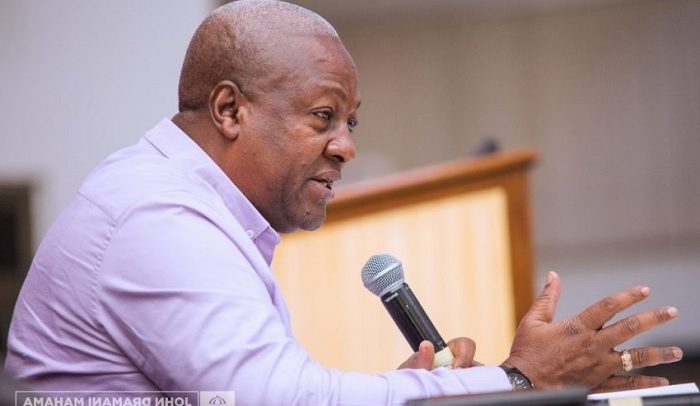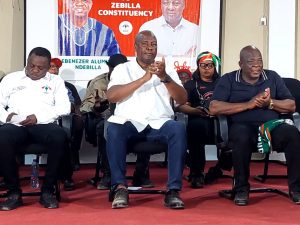Ghana’s Economic Crisis Demands Experienced Leadership for Recovery, Says Mahama
2 min read

Former President John Dramani Mahama has labeled Ghana’s current economic situation as the most severe in the nation’s history. Addressing the community in Zebilla, where he is campaigning for the 2024 election as the National Democratic Congress (NDC) flagbearer, Mahama criticized the incumbent government’s handling of the economy, asserting that “everything is declining” under their watch.
Mahama acknowledged that his own administration was not without flaws, but he argued that progress was being made despite challenges. In contrast, he believes the current economic downturn surpasses all previous crises in severity. He emphasized that the economic troubles have extended beyond financial metrics to affect virtually all sectors and institutions, heavily impacting the most vulnerable populations.
 The former President pinpointed excessive borrowing and poor economic management as key factors behind the crisis. He noted that Ghana’s national debt has skyrocketed from GH₵120 billion in 2017 to GH₵750 billion in 2024. This massive increase has led to a need for restructuring of domestic debt and external assistance from the International Monetary Fund (IMF). For the first time, Ghana has had to declare itself bankrupt and halt debt payments due to an inability to meet financial obligations.
The former President pinpointed excessive borrowing and poor economic management as key factors behind the crisis. He noted that Ghana’s national debt has skyrocketed from GH₵120 billion in 2017 to GH₵750 billion in 2024. This massive increase has led to a need for restructuring of domestic debt and external assistance from the International Monetary Fund (IMF). For the first time, Ghana has had to declare itself bankrupt and halt debt payments due to an inability to meet financial obligations.
Mahama challenged the notion that the crisis was primarily triggered by external events such as the COVID-19 pandemic or the Russia-Ukraine war. He argued that the current administration received significant financial aid—amounting to GH₵22 billion—from the IMF, World Bank, and Stabilisation Fund during the pandemic, which he claims was poorly managed. He pointed out that despite the substantial aid, the economic situation has deteriorated.
Furthermore, Mahama criticized the current government for mismanaging traditional industries crucial to the economy. For instance, he highlighted a dramatic decline in cocoa production, which fell from 967,000 metric tonnes under his administration to just over 400,000 metric tonnes. This drop has significantly reduced the revenue from cocoa exports, which previously injected $2 billion into the economy. Similarly, he noted a 32% decline in oil and gas production, despite his administration’s efforts to boost the sector by establishing new oil wells.
Mahama accused the current government of economic mismanagement and “state capture,” where a small group benefits disproportionately from national resources. He argued that the situation necessitates a change in leadership to prevent further economic collapse and restore stability.
He proposed that the NDC’s 24-hour economic policy would be instrumental in reviving the economy and creating job opportunities for the youth. Mahama asserted that a significant portion of Ghanaians—80%—believe the country is headed in the wrong direction under the present administration. He emphasized that a change in leadership is crucial for redirecting the nation’s course and improving its economic prospects.
In summary, Mahama called for an experienced and capable leadership to address Ghana’s economic woes and steer the country towards recovery. He stressed the need for a shift in governance to reverse the current trajectory and enhance national stability and growth.
WhatsApp us